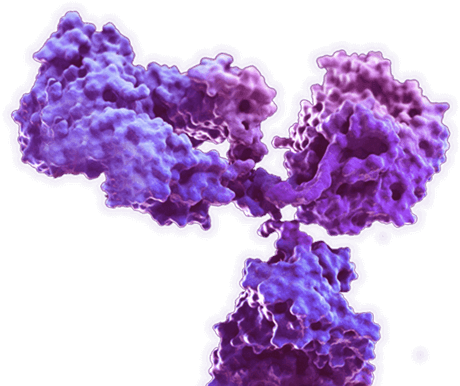AibGenesis™ Mouse Anti-Arabidopsis AT4G21105 Antibody (CBMOAB-0101FYC)
Cat: CBMOAB-0101FYC

Certificate of Analysis Lookup
To download a Certificate of Analysis, please enter a lot number in the search box below. Note: Certificate of Analysis not available for kit components.
Lot Number
To download a Certificate of Analysis, please enter a lot number in the search box below. Note: Certificate of Analysis not available for kit components.
Lot Number
| Size: | |
| Conjugate: | |
| Inquiry |
- Specifications
- Application Information
- Target
- Reference
Specifications
| Host species | Mouse (Mus musculus) |
| Species Reactivity | A. thaliana (Arabidopsis thaliana) |
| Clone | MO0101FC |
| Specificity | This antibody binds to Arabidopsis AT4G21105. |
| Format | Liquid or Lyophilized |
| Storage | Store at 4°C: short-term (1-2weeks) Store at -20°C: long-term and future use |
| Purity | > 90% was determined by SDS-PAGE |
| Purification | Purified with Protein A or G affinity chromatography |
| Cellular Localization | Other locations; Mitochondrion; Vacuole; Cytosol |
Application Information
| Application | WB, ELISA |
| Application Notes | ELISA: 1:1000-1:3000 Other applications are to be developed. The optimal dilution should be determined by the end user. |
Target
| Product Overview | Mouse Anti-Arabidopsis AT4G21105 Antibody is a mouse antibody against AT4G21105. It can be used for AT4G21105 detection in Western Blot, Enzyme-Linked Immunosorbent Assay. |
| Alternative Names | At4g21108/At4g21108; Cytochrome-c oxidase/ electron carrier; Putative uncharacterized protein At4g21105/F7J7.1; At4g21105 At4g21105/F7J7.1 |
| UniProt ID | Q944S8 |
| Protein Refseq | The length of the protein is 68 amino acids long. The sequence is show below: MLTETPFRPREKLLEKQRLFQSIQRHTYLKGPMDKITSVAIPIALAASSLYMIGTGIYNMSNGIGKKE. |
Reference
| Reference | 1. Jobson, R. W., Nielsen, R., Laakkonen, L., Wikström, M., & Albert, V. A. (2004). Adaptive evolution of cytochrome c oxidase: infrastructure for a carnivorous plant radiation. Proceedings of the National Academy of Sciences, 101(52), 18064-18068. 2. Lan, P., Li, W., Wen, T. N., Shiau, J. Y., Wu, Y. C., Lin, W., & Schmidt, W. (2011). iTRAQ protein profile analysis of Arabidopsis roots reveals new aspects critical for iron homeostasis. Plant physiology, 155(2), 821-834. |
For Research Use Only | Not For Clinical Use.
Online Inquiry


